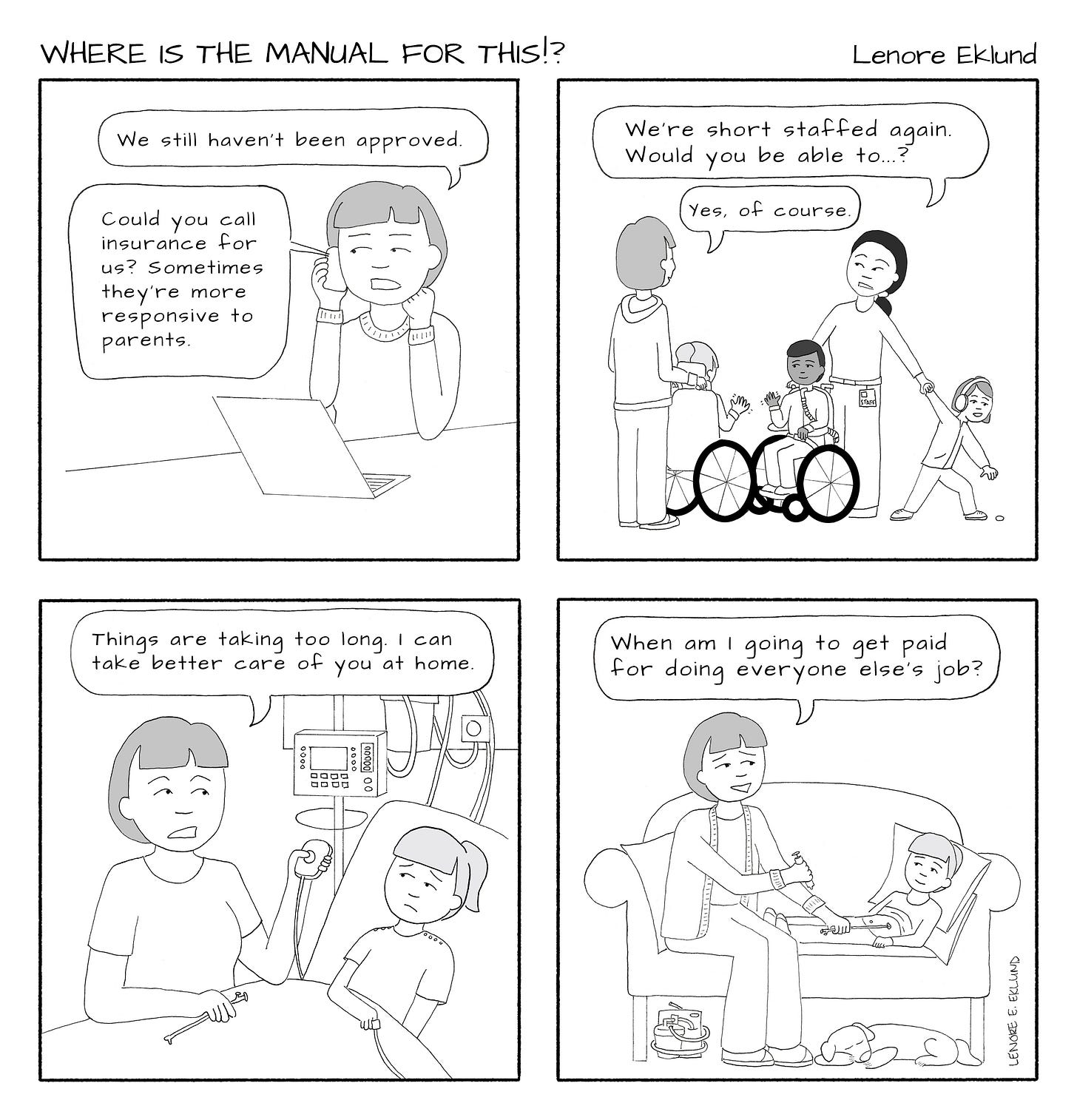The Buck Stops Here
Plus: Oregon parents push to be paid caregivers; Kansan NGO stops work for disabled children after USAID implosion; OMB memo still reeking havoc on disability orgs despite reversal
Every parent knows the feeling of picking up the slack when systems fail, but for parents of disabled children, this isn’t an occasional inconvenience — it’s a full-time, unpaid job. When insurance companies fail to communicate, we’re expected to chase down approvals. When schools are short-staffed, we become the one-on-one aides. When hospitals are ove…




